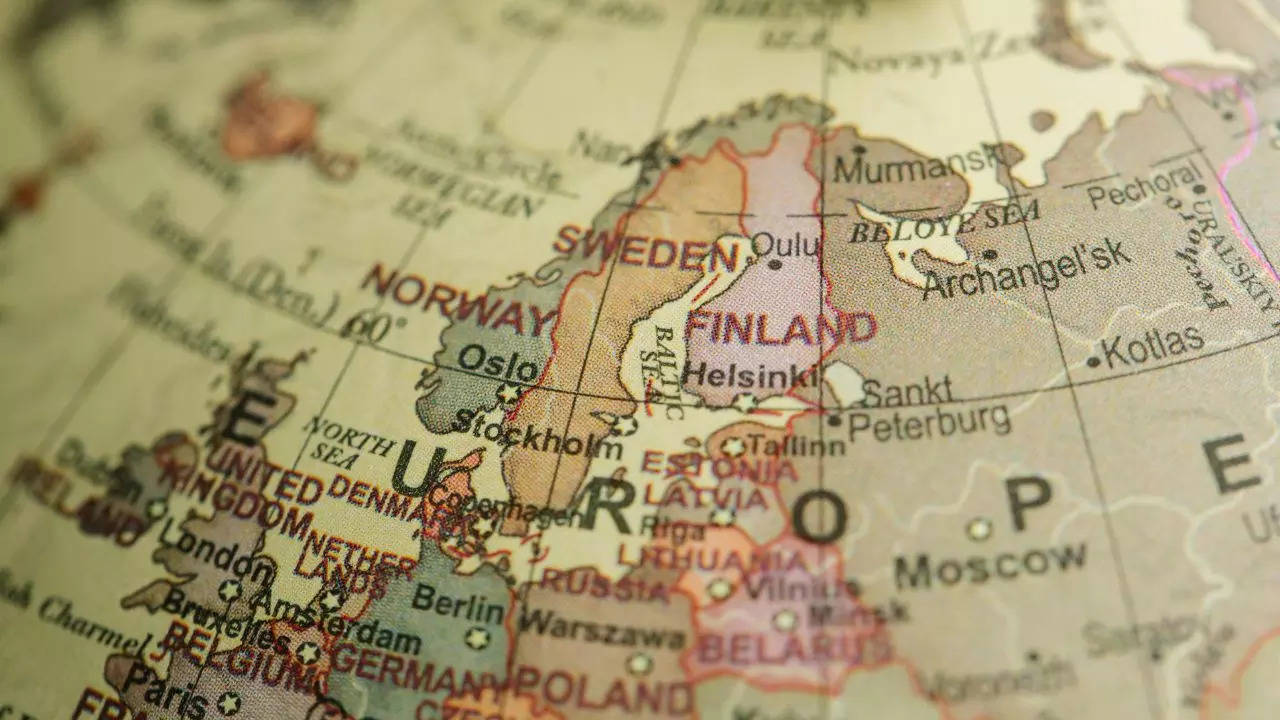Travel
Over-tourism is a worry in Europe even as the travel urge is strong. What is the solution?

The clouds of dust that occasionally blow in from the Sahara and cling to the air in an orange haze are not the only nuisance troubling citizens of Athens.
People in the Greek capital are also complaining about another invasion of their space, the mass tourism that puts services under pressure and tempts landlords to let apartments for lucrative short-term stays rather than to locals.
Athens is far from alone among European holiday destinations where serious doubts are being raised about the benefits of tourism and where residents increasingly highlight its negative impact.
Thousands have taken to the streets of Spanish islands – Tenerife in the Canaries, Majorca in the Balearics – while the Italian city of Venice has become the first in the world to charge an entrance fee.
In the Netherlands, construction of new hotels, except to replace those that close, has been banned with immediate effect in Amsterdam to prevent overnight stays rising above last year’s total of 20 million.
Even in Paris, where there was delight at being chosen for the 2024 summer Olympics after missing out to London in 2012, inhabitants now grumble that they are being advised to work from home or commute on foot during the games, from July 26 and August 11, because the Metro network will be overcrowded.
What is common to these countries, and others attracting visitors in large numbers, is that they all have economies dependent to some extent on people choosing to spend their holidays there.
In each case, the issue is not so much tourism as over-tourism – or the wrong kind of tourism, organised groups or passengers from cruise liners who clog streets but often spend little. In the worldwide travel boom that has followed the Covid-19 pandemic, finding a solution has assumed growing importance.
The concerns are real and often justified even if they have been exaggerated by social media agitation and a flurry of media coverage, some of which is misleading. Spanish tourism officials were especially angered by some British reports warning would-be holidaymakers that they could be refused entry unless they are able to prove they had at least €97 ($104) a day each in spending money.
Familiar long queues were already forming outside the Acropolis, the spectacular monument to ancient Greece that dominates the Athens skyline except when dust fills the air, as I learnt of unease in the city about the effects of excessive tourism.

Like many drawn to this beautiful city, I have watched businesses near Syntagma Square putting up shutters early ahead of protests against austerity that can turn violent. Now, demonstrations about over-tourism have also become a regular feature.
France 24 television said that protesters were resorting to graffiti, vandalism and arson, and chanting about property owners “living in the Maldives while we’re here serving tzatziki”. The report estimated that Athenians spend 40 per cent of disposable income on housing. Some tenants have been evicted to make way for Airbnb lets or offices for ”digital nomads”, people needing temporary use of workspace.
Municipal officials see the problems facing ordinary people as part of the painful legacy of successive IMF and EU bailouts as Greece struggled to cope with huge debt.
The economy has now returned to growth and tourism is on the rise. This year, after a sharp increase in the first quarter, the Athens airport is expected to see 30 million arrivals. The question is whether the country, and especially its capital, is equipped to cope with the influx.
The fee of €5 to enter Venice will apply to those not living or working in the city
Haris Doukas, the centre-left mayor of Athens elected in January, says the total of €2.7 million earned by the city council from tourist activity in 2023 amounted to just 42 cents for every visitor.
Writing in the Greek daily newspaper, Kathimerini, he said that financial constraints imposed by the Greek government meant the state grant to Athens was only enough for a city of about 700,000. In reality, 10 times more people are in the capital each day.
“While the demands for services and infrastructure in Athens are increasing at a leaping rate, the means we have to respond are also decreasing at a leaping rate, which creates serious dysfunctions in the city and the tourism product itself,” Mr Doukas wrote.

Across the Canaries, Spanish territory just 300 kilometres off the Moroccan coast, concerted protests on April 20 were joined by 50,000 people according to organisers, 20,000 on police figures. More rallies, including one in the southern mainland city of Malaga on June 29, are planned.
The Canaries attracted 13.9 million visitors last year, more than six times their population. Although tourism earns 35 per cent of the islands’ gross domestic product, many residents claim the current model is unsustainable and benefits developers rather than local people, with many living in poverty.
Pay rates for those working in tourism can be low, job security limited. Among slogans seen in various media reports are one reading “My misery, your paradise”, another “you enjoy, we suffer”. Campaigners say some people have been reduced to living in shacks, cars or even caves.
The fee of €5 to enter Venice will apply to those not living or working in the city, or at least staying overnight, on selected days for a trial period until the summer. Barcelona and other popular cities around Europe are keenly watching its progress, but Venetians are divided, with opponents unconvinced it will do anything to prevent mass tourism and encourage residents and small businesses to stay.
Sean Tipton, from the Association of British Travel Agents – or Abta – which also represents tour operators, is attempting to reassure those planning holidays that they have no reason to fear a frosty reception when they go abroad.
“People are not against tourism per se,” he says. “It is the business models that concern them. Generally speaking, they don’t have a problem with us as we are putting holidaymakers in hotels which employ local people.”
The main grievance, he argues, is with the rapid growth of “peer to peer” accommodation, travellers booking their stays directly using Airbnb and other online options such as Booking.com, putting pressure on both the availability and cost of rented accommodation for locals.
But he is critical of media outlets that published reports with headlines implying that as part of the official response to mass tourism, British visitors were suddenly being targeted by a so-called “€97-a-day rule”.
In fact, all EU countries have longstanding requirements that visitors from outside the bloc have adequate funds to cover their needs, the amount varying between countries. All that has changed is that as a result of Brexit, British travellers are now in exactly the same position as those from outside the US, the UAE or anywhere else not belonging to the EU.
More from Colin Randall

“But the fact is that there is no evidence that anyone from Britain has ever been refused entry on such grounds or even asked to provide proof of funds,” Mr Tipton says.
Abta sees little sign that the travel trade will be affected by extreme weather conditions, such as the unusually heavy rainfall in the UAE and other GCC countries. The Gulf might even benefit from reduced tourism in Europe if restrictions become commonplace and again from next year, when Britons have to start paying for EU visa waivers as another post-Brexit complication. But the association does recognise a need in all popular destinations for sustainable tourism, for example by encouraging more travel out of high season.
What seems certain is that the urge to travel is unlikely to diminish. The challenge facing all concerned, from the tourism industry to governments and perhaps travellers themselves, is to reconcile the human love of adventure and the needs of people whose places they visit.
Published: May 01, 2024, 4:00 AM










